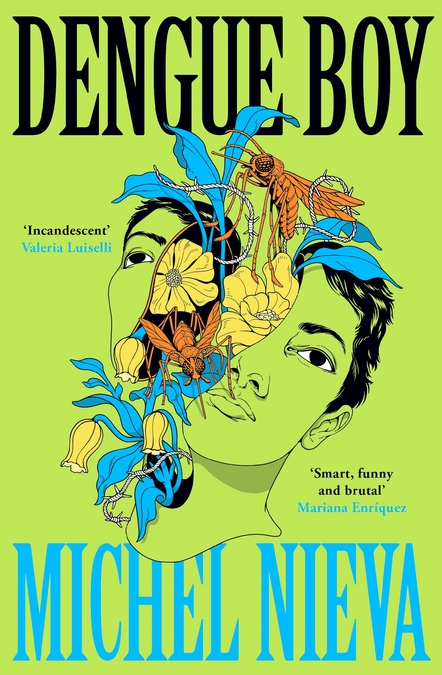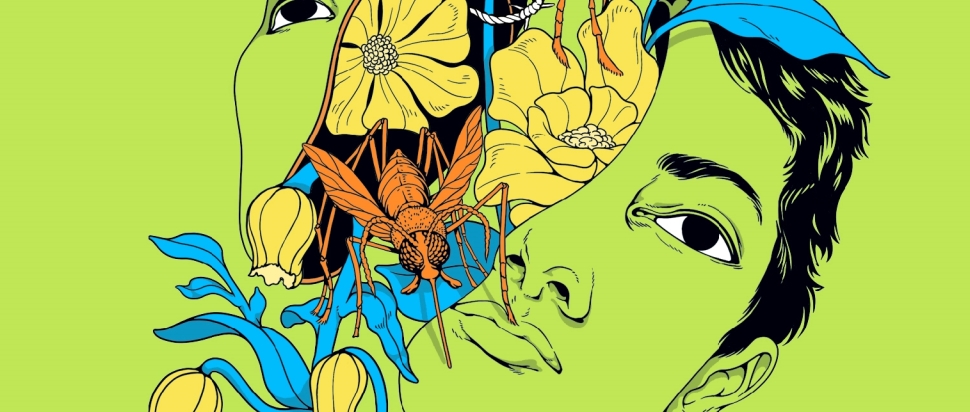Dengue Boy by Michel Nieva
In this surrealist fable, a half-human, half-mosquito boy encapsulates themes of climate catastrophe, hybridity and transformation
In the year 2272, climate change has transformed central Argentina into a new Caribbean; conglomerate corporations have recreated Earth’s extinct ecosystems in other planets – anyone can visit for the right price! – and the emergence of new viruses dictates stock market fluctuations as countries struggle to manage every new pandemic. It is into this scorching world that Dengue Boy, a half-human-half-mosquito creature is born. Poor and monstrous, resented by his mother and abused by his peers, Dengue Boy has one mission: to take revenge on the human race.
Michel Nieva’s Dengue Boy is a wild book, surprising on every page; insightful, funny and grotesque. A unique hybrid of body horror, absurdist satire and dystopian science fiction, this novel critiques capitalism and colonialism with an entrancing humorous tone and a gruesome plot. While clearly influenced by the likes of Cronenberg and Philip K. Dick, Dengue Boy is also distinctly Latin American. It is as Borgian as it is Kafkaesque, but more importantly, this novel is completely, freshly, Nievan.
Dengue Boy is a book about transformation. It might be eccentric, its absurdity too distracting at times, but it poses important questions about the metamorphosis of the self (it does not take long for the protagonist to become much more than a bullied mutant child), and about the tangible changes that are being inflicted on this very real planet today.

